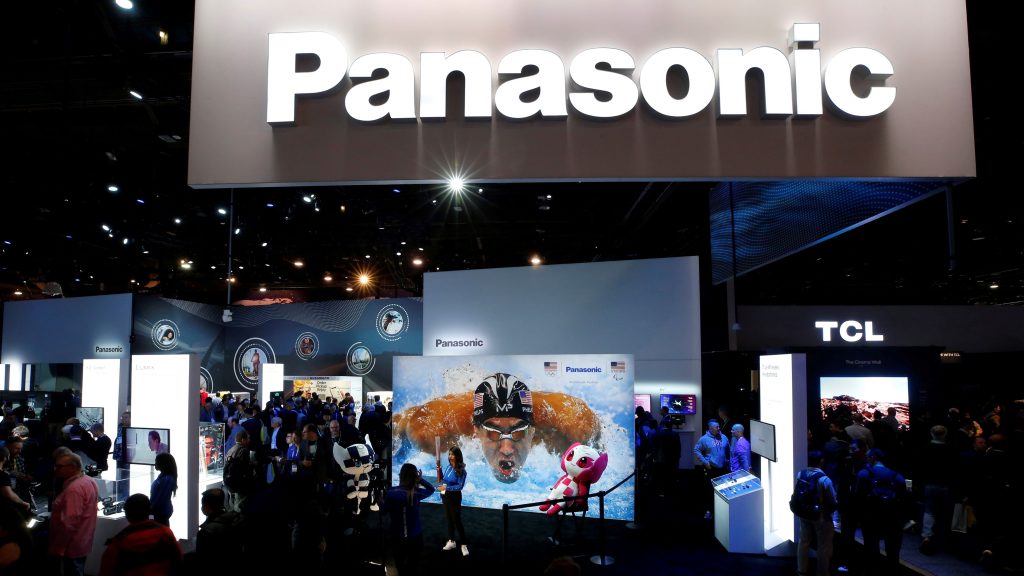Panasonic Prepares For Mass Production Of High-Capacity EV Batteries, Aims To Power Future Of Electric Vehicles

Panasonic Energy, a division of Japan’s Panasonic Holdings, has announced that it is ready to begin mass production of its next-generation electric vehicle (EV) batteries. These high-capacity 4680 cells are set to revolutionize the EV market, with automakers eagerly awaiting their delivery.
The newly revamped Wakayama plant in western Japan will serve as the primary production site for these cutting-edge batteries. The 4680 cells boast five times the capacity of Panasonic’s smaller 2170 cylindrical batteries, which are already supplied to major automakers like Tesla. Panasonic has already sent samples of the new batteries to its clients and plans to begin full-scale production once it receives approval from its partners.
The 4680 batteries, measuring 46mm in diameter and 80mm in height, promise to enhance the driving range of electric vehicles while reducing the number of cells required for the same battery capacity. This advancement is expected to bring significant benefits to automakers, helping them optimize battery efficiency and design more cost-effective EVs.
Panasonic Energy marked this milestone with a ceremony at the Wakayama plant, showcasing the completed preparations for mass production. Reporters were given a glimpse of the facility’s inspection line, where trays of silver-hued battery cells were seen in action.
Kazuo Tadanobu, CEO of Panasonic Energy, emphasized the long-term potential of the global EV market. “We are entering a crucial phase in the development of electric vehicles, and our 4680 cells are designed to meet the growing demand for higher performance and longer-range EVs,” Tadanobu said, adding that the plant will initially produce several gigawatt hours of batteries annually.
By March 2025, the Wakayama facility is expected to employ around 400 workers dedicated to the development and production of these advanced batteries. Panasonic Energy also plans to use this plant as a testing ground for processes that could be implemented at other battery factories worldwide, further solidifying its position as a leader in EV battery technology.
Panasonic already manufactures smaller cylindrical EV batteries—2170 and 1860 cells—at its Suminoe and Kaizuka plants in Japan. As the demand for electric vehicles continues to surge, the company is expanding its footprint in the automotive battery market. In a recent collaboration with Subaru, Panasonic announced plans to build a new plant in Gunma prefecture, set to supply automotive batteries starting in 2028.
With the EV market poised for long-term growth, Panasonic Energy’s move to ramp up production of its 4680 batteries signals a major leap forward in the race to power the electric vehicles of tomorrow.
The broader picture
Panasonic Energy is gearing up for the mass production of its high-capacity 4680 battery cells, a significant step forward in the electric vehicle (EV) sector. These 4680 cells, which offer five times the capacity of the older 2170 cells, will help automakers extend the range of EVs and improve overall efficiency. The company has completed preparations at its Wakayama plant in Japan, which will serve as the primary site for production.
Panasonic’s 4680 cells are in high demand, especially from Tesla, with whom Panasonic has a long-standing partnership. The company is now sending battery samples to automakers for approval, with production expected to ramp up once the green light is given. Additionally, Panasonic is considering expanding its 4680 battery production in the U.S., potentially at its De Soto, Kansas, plant, to meet Tesla’s growing demand for next-gen vehicles like the Cybertruck.
However, the full-scale rollout has faced some delays. Initially expected to begin earlier, mass production is now planned for fiscal 2025 as Panasonic works on performance improvements to ensure these batteries are competitive in the rapidly growing global EV market.
This push highlights Panasonic’s ambitions to significantly increase its production capacity, aiming to play a key role in the future of electric mobility.




